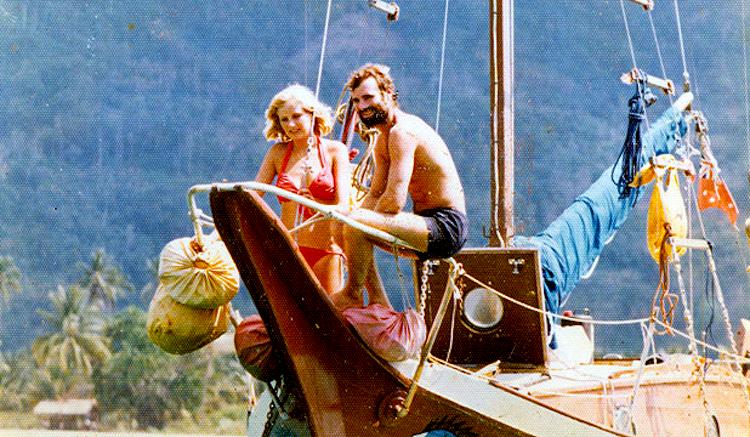By Joe Bendel. For one New Zealander, a Canadian, and a British subject sailing through Asia, straying off course became a capital crime. It was their profound misfortune to anchor within the territorial waters of Cambodia while the country was held in the inhuman grip of the Communist Party of Kampuchea, or the Khmer Rouge as they would subsequently be known. In 2007, Rob Hamill had the opportunity to testify on behalf of his late brother in the first trial of a Khmer Rouge official for crimes against humanity. Annie Goldson followed Hamill’s quest for justice, or at least a measure of closure, in Brother Number One, one of a handful of must see films at this year’s typically uneven 2012 Human Rights Watch Film Festival in New York.
The film’s title carries a rather odd double meaning. Pol Pot, the Robespierre of the nationwide genocide, was dubbed “Brother Number One” in Communist propaganda, whereas Kerry Hamill was the first of three brothers. Charismatic and athletic, the elder Hamill brother left New Zealand in search of seafaring adventure. The 1970’s still felt like the 1960’s for him and his mates, who were largely oblivious to the horrors underway in Cambodia.
Canadian Stuart Glass was killed during the attack on their small yacht, which was probably a small mercy. Hamill and the British John Dewhirst were captured and transferred to the notorious Tuol Sleng prison, commanded by Kaing Guek Eav, a.k.a. “Comrade Duch.” In his own words, Duch’s prisoners were to be “smashed.” This entailed torture, the extraction of a false confession, and an agonizingly slow execution.
As he prepares his “Civil Party” statement, Hamill visits the Tuol Sleng Genocide Museum and talks to the handful of survivors, getting a painful sense of his brother’s final months. He also interviews several former Khmer Rouge officials, who are not exactly forthcoming. More satisfying are his meetings with Dewhirst’s sister and his brother’s girlfriend, bonding through their shared grief.

Though it is an intensely personal story, Brother vividly establishes the scale and ferocity of the Khmer Rouge’s reign of terror. The walls of victim photographs at Tuol Sleng speak for themselves. We do learn a bit about Duch, the subject of The Bookkeeper of Death (recently seen on PBS World), but Rob Hamill is appropriately granted the floor throughout the documentary. Frankly, it is quite amazing how well he keeps it together as he confronts the ghosts haunting his family.
An Olympic rower at the Atlanta games, Rob Hamill is indeed a compelling POV figure. He certainly puts a human face on the nearly inconceivable tragedy of so-called “Democratic Kampuchea.” Yet, the documentary never feels manipulative or exploitative. Goldson wisely stays out of the picture, resisting the temptation of putting any sort of explicitly personal stamp on the film. Nor are there moments of quiet observational slack. Brother has a compelling narrative, which Goldson and her co-director-dp Peter Gilbert and co-editor James Brown hew to quite tightly.
Brother Number One clearly illustrates how vicious ideology can be. It also reminds viewers how one murder can devastate an entire family. As for resolution, that is another matter entirely. That is indeed why Brother Number One is a timely and important film. One of three highly recommended films at this year’s New York edition of HRWFF, along with Salaam Dunk and Ai Weiwei: Never Sorry, it screens this coming Tuesday, Wednesday, and Thursday (6/19-6/21) at the Walter Reade Theater, with Goldson and Hamill in attendance all three nights.
LFM GRADE: A
Posted on June 18th, 2012 at 4:51pm.
I think the international Khmer Rouge tribunal is a farce at best. There is no way that trying five surviving members of the Khmer Rouge leadership will bring either justice or closure to the millions of innocent victims who have perished or are still reeling from their genocidal rule. I think the focus should be on education and raising awareness so that similar atrocities do not happen again.